An open letter concerning AI regulations for Edtech
The following is part of an open letter we sent to the EU Commission regarding their proposed regulation on the use of artificial intelligence (AI):
We write with regards to the proposed regulations on the use of AI, published by the European Commission (the “Commission”) for public consultation on April 21, 2021: the European EdTech Alliance (EEA) fully supports the EU Commission in its commitment to ensure that its citizens, and in particular, children across the EU remain safe when engaging in digital activities such as online learning. Furthermore, we would welcome the opportunity to discuss these proposals with you to better offer our collective insights and convey to the EC our sincere concerns regarding the impact of your proposals on the education technology (EdTech) industry, as well as, on the advancement of future educational technology solutions.
The Alliance boasts a coalition of over 20 European trade associations, who represent more than 2,400 European EdTech suppliers, many of whom stand to be affected by the proposed Artificial Intelligence Act (the “Regulation”).
There can be no doubt that AI will play an increasingly critical role in raising the standards and accessibility of education in the next few years and beyond, especially as we look to help our young people recover and recoup learning deficits incurred as a result of the global COVID-19 pandemic.
Simultaneously we must tackle the pan-European challenges for up-skilling and re-skilling the workforce to secure the competencies needed for both the digital and environmental transformation of all industries. Education is of utmost importance: it is integral to the prosperity and competitiveness of our continent.
The future of European education innovation depends on the quality and insightfulness of the regulatory framework. However, a 360 degree view of the consequences of such a framework must also consider the risks and opportunities its implementation will bring, both for learners, companies and other stakeholders. The Commission can then build, in confidence, the support needed to securely scaffold the implementation of its AI regulation and to proactively harvest the enormous potential technology has to meet our challenges.
We believe that we have many concerns in common that need to be addressed, for example:
We know about the potential risks of poorly designed AI-technology
We are also aware of the risks of not investing in AI to help solve our most pressing challenges.
Many emerging and innovative digital education companies are currently in the early stages of growth. EdTech is a young and often fragile industry consisting of many small and medium sized companies (many of them at early stage typically consisting of only two to five team members), as well as, a few larger corporations. How will the coming regulations affect them and how might support be designed to stimulate and not stifle innovation in order to help them to incorporate ethical AI practices into the design of their solutions and embed in them the need to be fully transparent in terms of how they intend to collect, collate and use any data collected from their customers?
What can we learn from the regulatory problems arising from technical implementations of the GDPR and how GDPR was interpreted by many companies, the Education sector, customers and national and EU regulators?
Experience from GDPR shows that European regulations also influence technical development in all regions of the world, and if the new proposed AI regulations are designed well and implemented correctly, they will secure the stronghold of the European education sector, secure the future skills for the coming generations and at the same times secure innovation in the sector and potentially open up new areas of business for the European EdTech industry and thereby job creation.
We would be more than happy to share our collective insights on the shaping of the coming AI regulations and how we can support technology innovation in education to meet our future challenges. With this in mind, may we propose a meeting to discuss with your working group ways in which, together we might ensure a thriving European educational technology industry to cater to our common goals for education while also creating a competitive advantage of European education technology on a global scale, setting the standard of safety and integrity of learners first?
The European EdTech Alliance is currently collecting insights from our far-reaching community of EdTech companies to assist in the preparation of the forthcoming AI regulation. Do you want to help us or have insights to share? Let us know! info@edtecheurope.org

